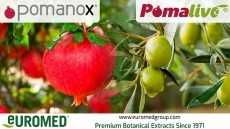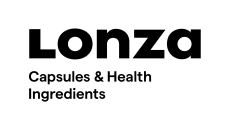Nutraceuticals drive development at Forbes Medi-Tech
full year 2004 to C$17.04 million, almost all of which was
generated by its nutraceutical business.
But overall the Canadian life sciences company showed heavy operating losses increasing from C$2.15 to C$8.01 million, or from C$0.25 to C$0.09 per share, as it upped its spend on R&D, particularly in pharmaceuticals.
The European Phase II trial for the company's lead pharmaceutical cholesterol-lowering compound, FM-VP4, was completed last year and the US Phase II trial is scheduled for later this year.
In January the company raised its expectations for the year ended 31 December 2005 from C$17 million to between C$20 and C$21 million. Chief financial officer David Goold told a conference call last week to discuss fiscal 2004 that the company is on target to meet this revenue projection for the coming year.
In September 2004 Forbes Medi-Tech announced a three-year, US$24.4 million sterol shipments agreement between its manufacturing joint venture Phyto-Source and an undisclosed multinational ingredient company. This agreement came into effect January 2005, so revenues generated from this were not included in the 2004 results.
The second quarter of 2005 will also see the introduction of products containing the company's cholesterol-lowering ingredient in Europe, following approval granted last month by European regulatory authorities to market its cholesterol-lowering ingredient Reducol in yellow fat spreads (margarine), fermented milk type products, soy drinks, low-fat cheese type products, yogurt type products, spicy sauces, and salad dressings.
Reducol had previously been approved in Europe for milk products.
"2005 is about growing - preparing and building an organization to meet the pending demands for these products and the development of a potential blockbuster drug," Butt told the conference call.
Forbes Medi-Tech is poised to meet the expanding demand for Reducol following the completion of its expanded facility in Pasadena, Texas. The expansion gave the company an annual production capacity of 1500 metric tonnes per year - 50 percent more than previously - which Butt said translates to between US$30 and $35 million depending on the mix.
In 2003 the FDA extended permission for food products and dietary supplements containing at least 0.65 grams of phytosterol esters or 0.4 grams free phytosterols per serving to be labeled as "heart healthy".
According to the American Heart Association, 70.1 million Americans suffer from one or more type of cardiovascular disease. In recent years there has been a growing trend towards use of natural cholesterol-lowering products in place of statin drugs, the side effects of which include liver and digestive tract problems, hepatitis and a muscle-damaging condition called rhabdomyolysis.










